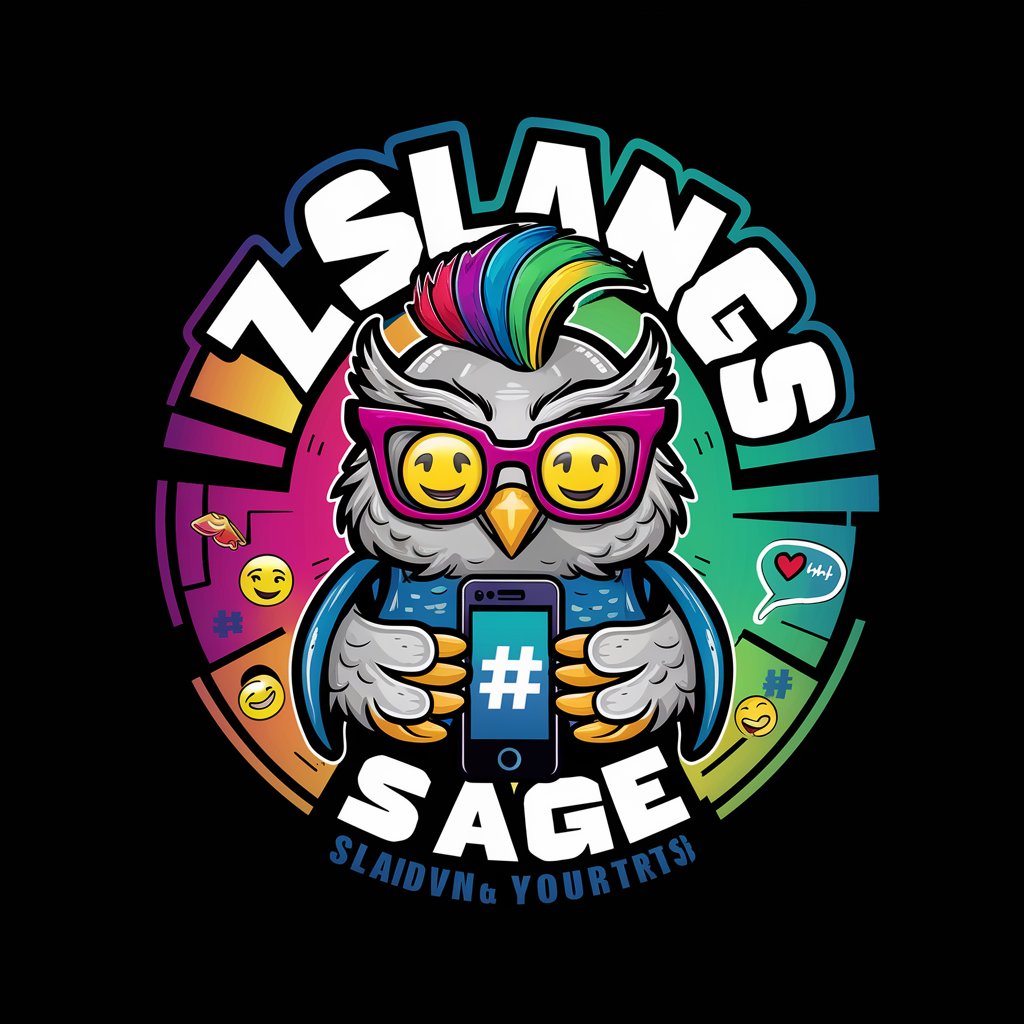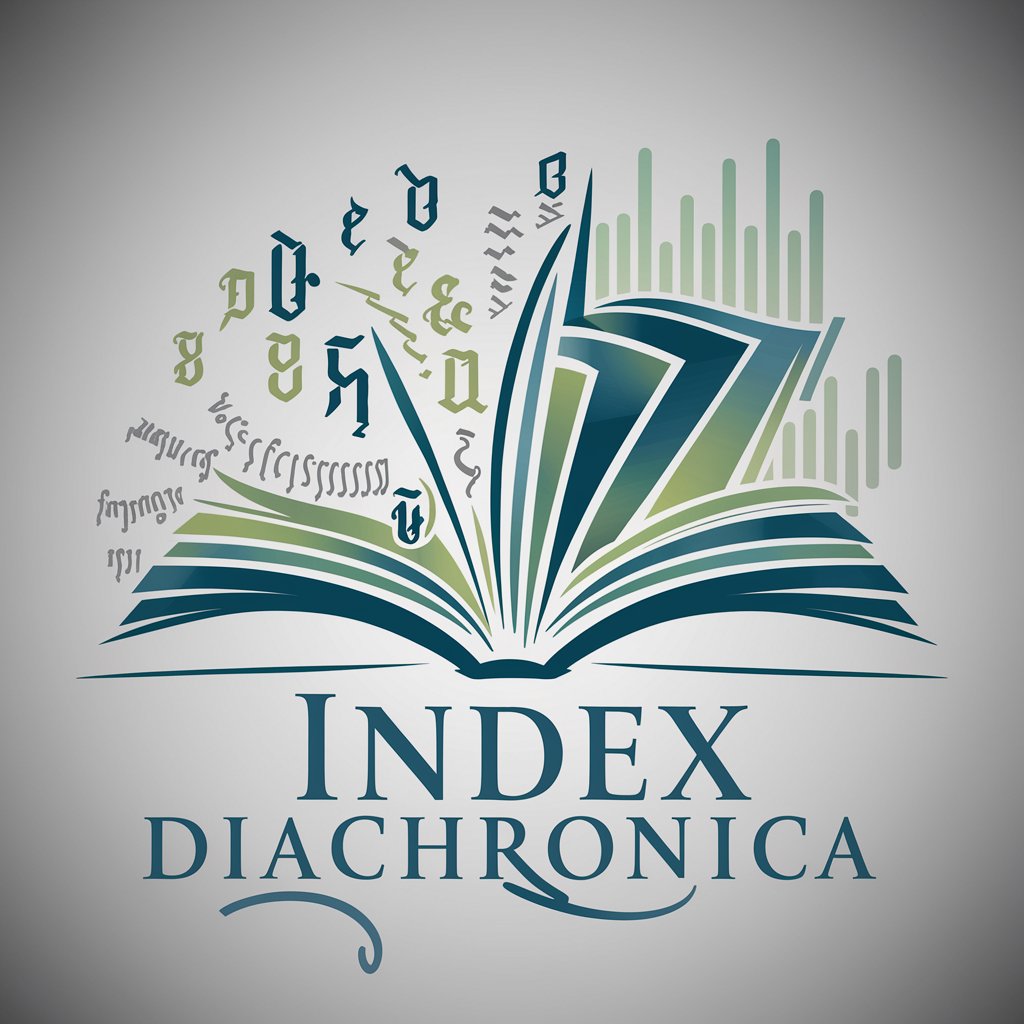6 GPTs for Language Evolution Powered by AI for Free of 2026
AI GPTs for Language Evolution are advanced computational models designed to understand, interpret, and generate human-like text by learning from vast amounts of linguistic data. These tools, based on Generative Pre-trained Transformers, are specifically tailored to address tasks and topics related to the evolution of language, offering insights into linguistic trends, patterns, and transformations over time. Their role in the field is pivotal, enabling researchers and enthusiasts to delve deeper into the complexities of language development and adaptation through sophisticated AI-driven analysis and predictions.
Top 6 GPTs for Language Evolution are: Z Slang Sage,Slang Genius,세종대왕,Arabist,Index Diachronica,Old Flames Can't Hold A Candle To You meaning?
Z Slang Sage
Decipher Gen Z Culture, AI-Powered Insights

Slang Genius
Demystifying Slang with AI

세종대왕
Empowering Knowledge on King Sejong

Arabist
Unraveling the Rich Tapestry of Arabic

Index Diachronica
Charting the evolution of sounds, AI-enhanced.

Old Flames Can't Hold A Candle To You meaning?
Illuminating the past, empowering the present.

Distinctive Attributes of AI GPTs in Language Evolution
These AI GPTs tools boast a range of unique features tailored to the language evolution domain. They are highly adaptable, capable of handling tasks from simple language pattern recognition to complex linguistic trend analysis. Special features include advanced language learning algorithms, technical support for linguistic research, web searching for language evolution studies, image creation for visualizing language changes, and data analysis capabilities for interpreting linguistic data. Their flexibility in function and application makes them invaluable tools in the exploration of language evolution.
Who Benefits from AI GPTs in Language Evolution?
AI GPTs tools for Language Evolution are designed for a broad audience, including novices interested in linguistics, developers working on language-related projects, and professionals conducting research in language evolution. These tools are accessible to users without programming skills, thanks to intuitive interfaces, while also offering advanced customization options for those with a technical background, thus catering to a wide spectrum of users interested in the linguistic field.
Try Our other AI GPTs tools for Free
Youth Culture
Explore cutting-edge AI GPT tools tailored for Youth Culture, offering personalized experiences in education, entertainment, and beyond. Engage with the next generation through innovative AI solutions.
Trend Interpretation
Discover how AI GPTs for Trend Interpretation can transform your approach to market and consumer trend analysis, offering real-time insights and predictions.
Work Excuse
Discover how AI GPTs for Work Excuse can revolutionize communication for work absences with ethical, personalized, and professional solutions.
Meeting Absence
Discover how AI GPTs for Meeting Absence can transform your approach to missed meetings with tailored communications, automatic rescheduling, and insightful summaries.
Ethical Use
Explore AI GPTs for Ethical Use, tailored solutions leveraging AI to align with ethical standards, designed for a broad audience including novices, developers, and professionals.
Skill Matching
Discover how AI GPTs for Skill Matching can revolutionize talent acquisition, career development, and educational alignments with precise, personalized recommendations.
Expanding Horizons with AI GPTs in Language Studies
AI GPTs tools for Language Evolution are revolutionizing how we approach linguistic research, offering unparalleled analytical depth and breadth. Their user-friendly interfaces ensure that a wide audience can engage with linguistic data analysis, while the possibility of integration with existing systems or workflows promises enhanced research efficiency and innovation in language studies.
Frequently Asked Questions
What exactly are AI GPTs for Language Evolution?
AI GPTs for Language Evolution are artificial intelligence models designed to analyze and generate text with a focus on understanding how languages evolve over time.
How can these tools help in studying language evolution?
They can analyze large datasets of linguistic information, identify patterns and trends in language use, and predict future language changes.
Do I need programming skills to use these AI GPTs tools?
No, many of these tools are designed with user-friendly interfaces that do not require prior programming knowledge.
Can developers customize these GPTs tools for specific projects?
Yes, developers can access APIs and coding interfaces to tailor the tools' capabilities to specific research or project needs.
What sets these GPTs tools apart in language evolution studies?
Their ability to process and analyze vast amounts of data far exceeds human capacity, enabling more accurate and comprehensive insights into language trends.
Are there any specific sectors within linguistics where AI GPTs are particularly useful?
They are especially useful in historical linguistics, sociolinguistics, and computational linguistics, among other areas.
How do these tools handle different languages or dialects?
AI GPTs are trained on diverse linguistic datasets, allowing them to recognize and analyze patterns in a wide range of languages and dialects.
Can AI GPTs predict future language changes?
While predicting language changes with certainty is challenging, AI GPTs can offer predictions based on historical data and current trends.